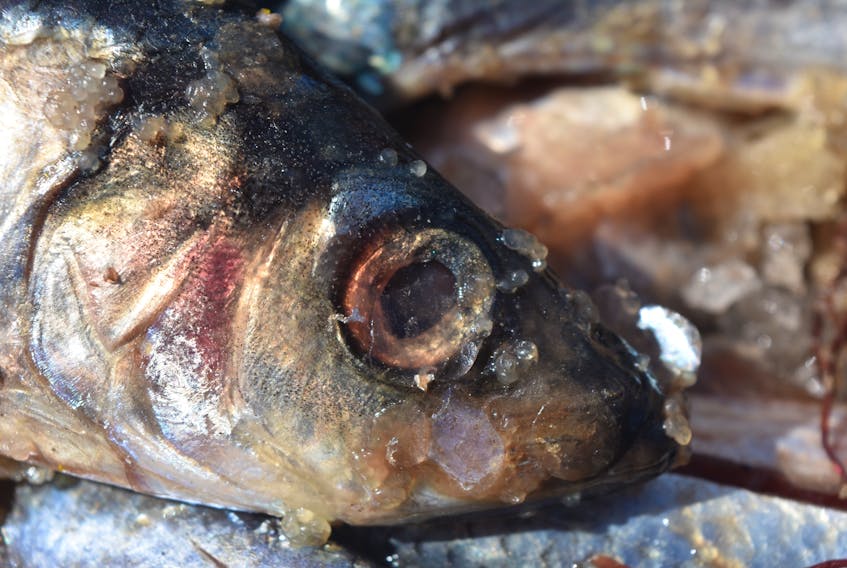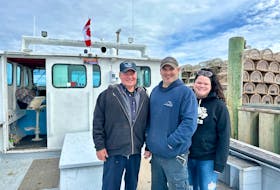TIGNISH, P.E.I. — A Tignish lobster fisherman says he would welcome new bait sources for the fishery “as long as it is environmentally-friendly.”
Kenneth LeClair, who is on the Small Pelagic Advisory Committee for the Western Gulf Fishermen’s Association, said traditional lobster bait, such as mackerel and herring, have grown scarce and expensive.
LeClair was commenting on news that a Canadian fish broker was recently granted permission to bring in blackbelly rosefish from Uruguay to use as bait for the lobster fishery in Maine.
The company, New Brunswick-based Cooke Aquaculture, is still awaiting Fisheries and Oceans Canada's decision on whether it can also market the bait in Atlantic Canada.
“If it works, we’ll use it,” said LeClair, who indicated he paid up to $1.35 a pound for fresh mackerel this spring, the highest amount ever.
“If you’re selling it, you’re pretty happy,” he acknowledged.
The price for mackerel has since dropped to 60 cents post-season.
“Supply and demand,” he said.
Meanwhile, a P.E.I. startup company, Bait Masters Inc., is in the research and development phase of testing the potential for an all-natural bait made of fish products and fish oils.
Business partner Mark Prevost said the company has run test trials on 10,000 units of the product known as FTPW480 and is preparing 300,000 units for the next round of testing.
The product’s name, Prevost noted, is derived in part from the 480 trials to get to the recipe that is in field trials.
Prevost said preliminary results suggest FTPW480 is as effective as traditional lobster bait.
“It uses less traditional bait. A pound of mine has a quarter pound of fish. It’s eight ingredients and it’s pasteurized,” which he said is an assurance the product does not introduce any level of bacteria.
The processed product, which also includes gelatin, is put in an organic packaging that resembles a large sausage. It is designed, Prevost said, to erode slowly over a two to three-day period depending on water temperature.
LeClair said he’s heard of the alternative bait product and is interested in learning how it works.
The Island fisherman added he's unfamiliar with Cooke Aquaculture’s newest baitfish, blackbelly rosefish.
Cooke Aquaculture was granted permission in Maine on June 29 to bring in the fish from Uruguay to be used as a baitfish for the lobster fishery in that state.
The need there is driven by further cuts to the herring fishery.
Joel Richardson, vice-president of public relations for the company, said Cooke Aquaculture is hoping to hear soon on its Canadian application so that it can address distribution and sales in Atlantic Canada.
He said Cooke has been receiving a lot of enquiries on its new baitfish.
Ian MacPherson, general manager of the P.E.I. Fishermen’s Association, suggested fishermen would be interested in examining alternate bait sources.
“There has been a lot of discussion over the availability and escalating cost of bait,” he said. “As with any business, people are looking for alternatives.”









